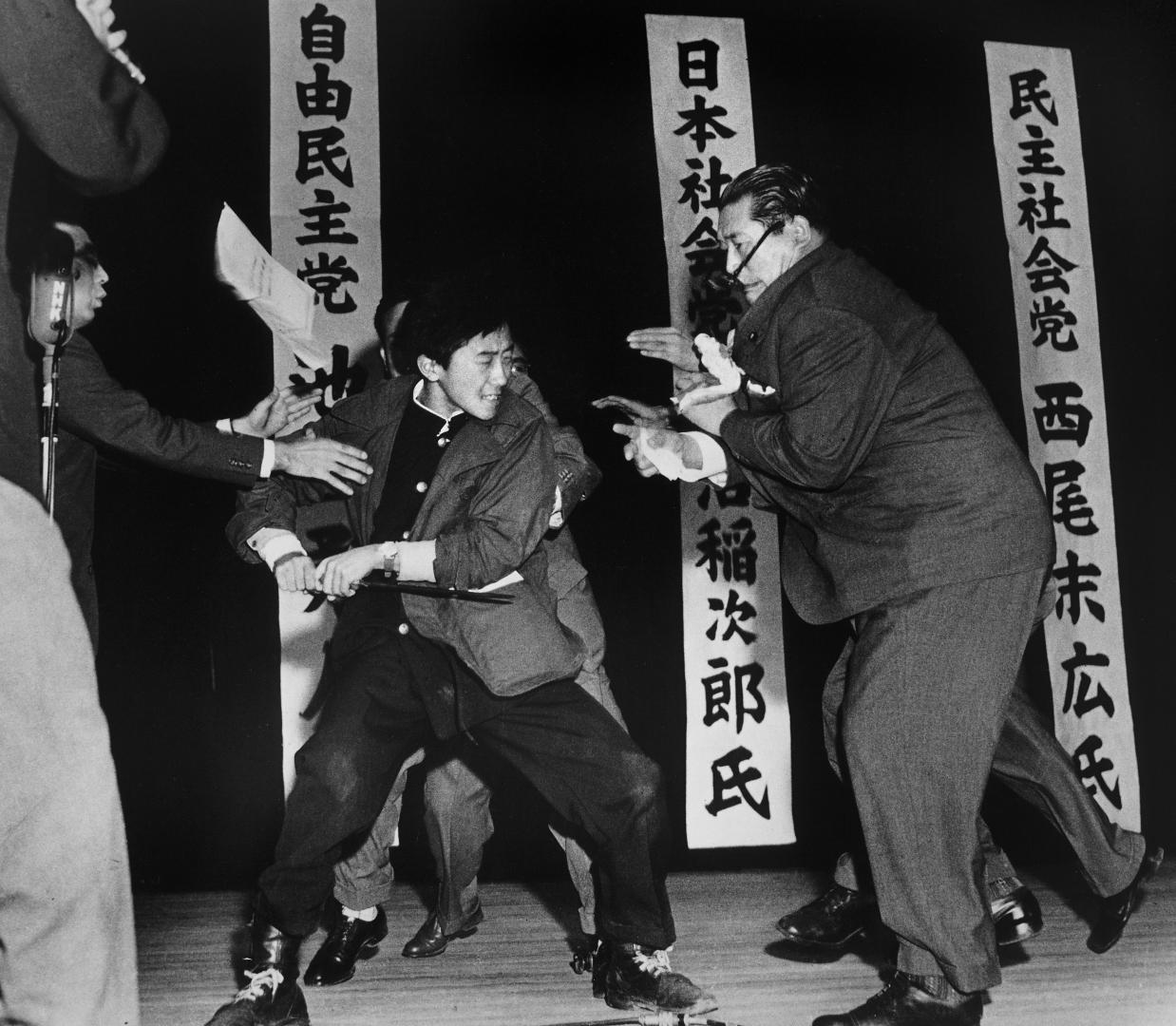
1943 - 1960
Otoya Yamaguchi
Summary
Name:
Years Active:
1960Birth:
February 22, 1943Status:
DeceasedClass:
MurdererVictims:
1Method:
StabbingDeath:
November 02, 1960Nationality:
Japan
1943 - 1960
Otoya Yamaguchi
Summary: Murderer
Name:
Otoya YamaguchiStatus:
DeceasedVictims:
1Method:
StabbingNationality:
JapanBirth:
February 22, 1943Death:
November 02, 1960Years Active:
1960bio
Otoya Yamaguchi was born on February 22, 1943, in Yanaka, Taitō ward, Tokyo. He was the second son of Shinpei Yamaguchi, who later became a high-ranking officer in the Japan Ground Self-Defense Force. Otoya was also the grandson of Namiroku Murakami, a famous writer known for his violent novels about the yakuza.
From a young age, Otoya had a strong interest in the news. He began reading newspapers in early childhood. He was upset by what he read, which led him to be critical of politicians and drawn to nationalist movements. Because of his father's job, he spent most of his childhood living in Sapporo, Hokkaido.
In 1958, Otoya was accepted into Tamagawa High School in Tokyo. However, his father transferred him to Sapporo Kōsei, a local Catholic school. Later, Otoya chose to move back to Tokyo to live with his brother and returned to Tamagawa High School. His brother influenced him, and Otoya began attending speeches and participating in protests organized by many right-wing groups.
A key moment in Otoya's life occurred on May 10, 1959, when he heard a speech by right-wing leader Bin Akao. Akao spoke about Japan being on the verge of a revolution and the need for youth to resist left-wing groups. This speech strongly impacted Otoya. Afterward, he expressed interest in joining Akao, leading to his formal membership in the Greater Japan Patriotic Party.
In 1960, protests against the U.S.-Japan Security Treaty were at their peak, known as the Anpo protests. Akao, being anti-communist, organized counter-protests. Otoya took part in these activities and was arrested multiple times in 1959 and 1960 during his first six months in the party. As he continued to participate, he became frustrated with Akao's leadership. Otoya felt that Akao was not radical enough and was more focused on gaining media attention than taking strong actions. Eventually, Otoya resigned from the Greater Japan Patriotic Party to pursue his own ideas.
murder story
On 12 October 1960, Otoya Yamaguchi attended a televised election debate at Hibiya Public Hall in Tokyo. The debate featured three politicians, including Inejirō Asanuma of the Japan Socialist Party. Around 3:05 p.m., Yamaguchi rushed onto the stage and attacked Asanuma with a wakizashi, a short sword he had stolen from his father. Asanuma was struck in the left flank and suffered massive internal bleeding. He died within minutes.

After the attack, bystanders quickly detained Yamaguchi until the police arrived. Upon being arrested, he had a notebook that detailed his justification for the act. In the notebook, he expressed his belief that Asanuma's political actions were unforgivable and referenced concerns about the possibility of Japan turning communist.
Following the assassination, Yamaguchi was imprisoned while awaiting trial. During his time in custody, he was calm and provided detailed testimony to the police. He explained that he aimed to restrict the future actions of left-wing leaders and hoped to awaken public awareness about what he viewed as dangerous leftist ideologies.
On 2 November 1960, less than three weeks after the assassination, Yamaguchi committed suicide in his cell. He wrote on the wall with toothpaste, declaring loyalty to the Emperor and expressing a desire to serve his country. He fashioned a makeshift rope from his bedsheets and hanged himself.
After his death, right-wing groups celebrated Yamaguchi, viewing him as a martyr. They held memorial services and provided traditional burial items to his family. His ashes were later interred in Aoyama Cemetery.